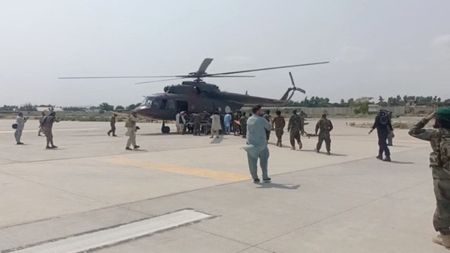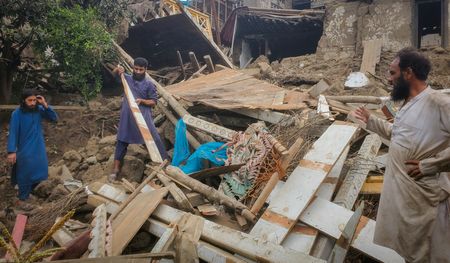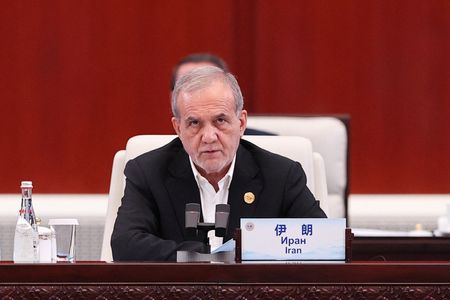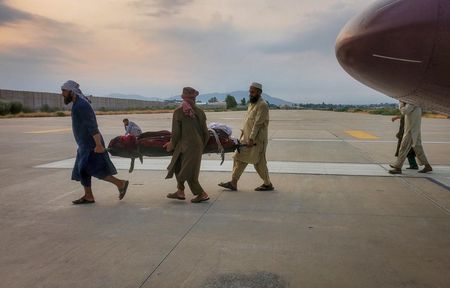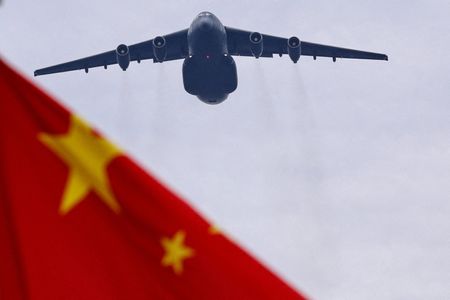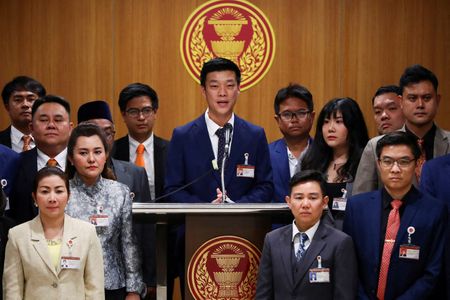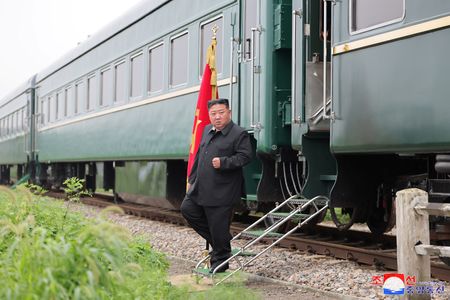By Charlotte Greenfield
KABUL (Reuters) -The shrinking of funding for Afghanistan, led by U.S. aid cuts, was hampering the response on Monday to a powerful earthquake in the east, with dozens of clinics closed and a helicopter out of use, humanitarian officials said.
The magnitude 6 tremor hit overnight, levelling villages, killing at least 800 people and injuring more than 2,800 in remote mountainside areas.
The ruling Taliban administration and aid officials have a daunting task to rescue and help thousands of Afghans with a tinier budget than ever and an economy in crisis.
“The actual delivery of response has been badly hit by the funding cuts this year, but also the number of people we have on the ground is much less than we would have had six months ago,” said Kate Carey, deputy head of the U.N. Office for the Coordination of Humanitarian Affairs in Afghanistan.
It was the third major deadly earthquake since the Taliban took over in 2021 in a nation also reeling from conflict, droughts, floods and the push-back of 2.1 million Afghans by neighbouring countries.
Afghanistan has been badly affected since U.S. President Donald Trump’s administration in January began funding cuts to its humanitarian arm USAID and aid programs worldwide in what he casts as part of a broader plan to remove wasteful spending.
But even before that, funding was shrinking to Afghanistan due to competing emergencies in areas like Ukraine, Gaza and Sudan, as well as frustration from donor governments over the Taliban’s policies towards women, especially its restrictions on the work of Afghan female NGO staff.
Humanitarian aid, aimed at bypassing political institutions to serve urgent needs, has shrunk to $767 million this year, down from $3.8 billion in 2022.
The impact of the cuts was starkly illustrated by the latest crisis, Carey said, with a creaking health system now dealing with thousands of patients hit by falling rubble.
Forty-four health clinics catering to over 363,000 people in Nangarhar and Kunar, the provinces worst-affected by the quake, suspended operations or closed this year due to U.S. aid cuts, according to World Health Organization figures.
NO HELICOPTER
Where in the past a helicopter would have taken health teams and supplies to remote villages only accessible by foot, funding cuts to the World Food Programme, which runs a humanitarian air service, put the aircraft out of commission earlier this year, Carey said.
The Taliban has appealed for more aid in a country where half the population was already in need of urgent humanitarian assistance according to U.N. estimates.
“Support from the international community is seen as essential,” said Abdul Rahman Habib, spokesperson for the Taliban-run Ministry of Economy, noting the fall in funds for food, healthcare, displaced people and communities hit by climate change.
Aid has been a lifeline during Afghanistan’s global isolation under the Taliban, whose government has only formally been recognised by Russia. Sanctions on some of its leaders have hampered the banking sector and the U.S. has frozen billions in central bank assets.
Taliban authorities do not publicly release their annual budget. The World Bank noted in April that although authorities’ tax and revenues mobilisation had been relatively strong, it had not been enough to offset the sharp drop in aid.
As well as the global funding plunge, the U.N. and charities have to navigate a plethora of complex policies on operations under the Taliban, which says Afghan female aid staff should not work though there are exemptions in health and education.
The Taliban, which has closed high schools and universities to female students and placed restrictions on their movement without a male guardian, says it respects women’s rights in accordance with its interpretation of Islamic law.
Sherine Ibrahim, the International Rescue Committee’s Afghanistan Director, said on Monday that the funding cuts were a drag on the response to Afghanistan’s latest disaster.
“Although we have been able to act fast, we are profoundly fearful for the additional strain that this disaster will have on the overall humanitarian response in Afghanistan,” she said.
(Reporting by Charlotte Greenfield in Islamabad and Mohammad Yunus Yawar in Kabul; Editing by Andrew Cawthorne)

